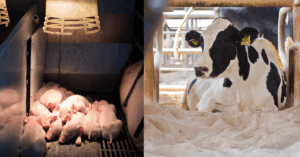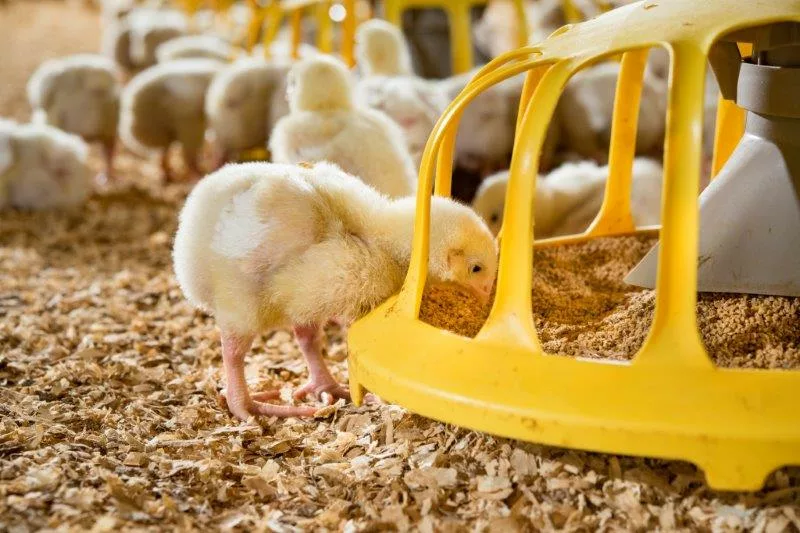Stress. We all feel it, whether it’s related to our relationships, our health, our jobs.
During the past two years, stress has been particularly pronounced with a pandemic that came out of nowhere and upended life as we knew it. How we manage stress that comes as part of life’s challenges plays a big part in our quality of life and our physical and mental health.
You might be surprised to know that stress is top of mind for farmers, too. I’m not talking about the personal stressors that most of us face, or even the unpredictable nature of farming. I’m talking about animal stress.
Animal care is a farmer’s top priority. And stress can be detrimental to animal health, negatively impacting the ability to thrive – and our food supply.
For example, a chicken under stress may not lay as many eggs. A dairy cow under stress may not produce as much milk. A sow under stress may have smaller litters of piglets. Overall animal welfare, productivity and ability to reproduce is affected.
What can stress an animal? Weather extremes, hunger and thirst, diseases or poor diet, to name a few.
That’s why farmers and other on-farm professionals – like veterinarians and nutritionists – work diligently to ensure animals are comfortable and healthy. It’s about doing what’s right to stop stress before it starts.
 Steps include ensuring easy access to nutritious food and clean water (no fights for space at the dinner table), and providing climate controlled and properly ventilated housing that can include sprinklers or fans to cool animals when needed and heat mats for newborns when it’s chilly. We now have “smart barns” where technology allows much of the barn’s environment to be controlled from a laptop or phone.
Steps include ensuring easy access to nutritious food and clean water (no fights for space at the dinner table), and providing climate controlled and properly ventilated housing that can include sprinklers or fans to cool animals when needed and heat mats for newborns when it’s chilly. We now have “smart barns” where technology allows much of the barn’s environment to be controlled from a laptop or phone.
Allowing the right amount of space for animals, quality veterinary care including medicines and vaccines to prevent and treat illnesses, and proper animal handling that avoids loud noises and quick movements that can startle animals are important, too.
Nutritional products play a role, as well. For example, when added to feed, nutritional specialty products like OmniGen® are designed to offer additional support to help cows maintain cow comfort and productivity throughout periods of increased temperature and humidity. Addressing heat stress is critical as it can decrease appetite, increase respiration rates, weaken the overall immune system and reduce milk production.
Even fish can get stressed out – whether they’re being vaccinated, moving to a different home or adjusting to varying water temperatures. We have a nutritional product for that, too!
Yes, stress is everywhere. But if the right steps are taken, it doesn’t have to take its toll on us – or animals raised for food. There are many tools in a farmer’s toolbox to help animals live their best, stress-free lives. And that translates to healthy animals and a nutritious, abundant supply of meat, milk and eggs that sustains families around the world.
Have questions? I’d love to connect with you! Reach out at @AskDrDorman or by email at AskDrDorman@pahc.com.
